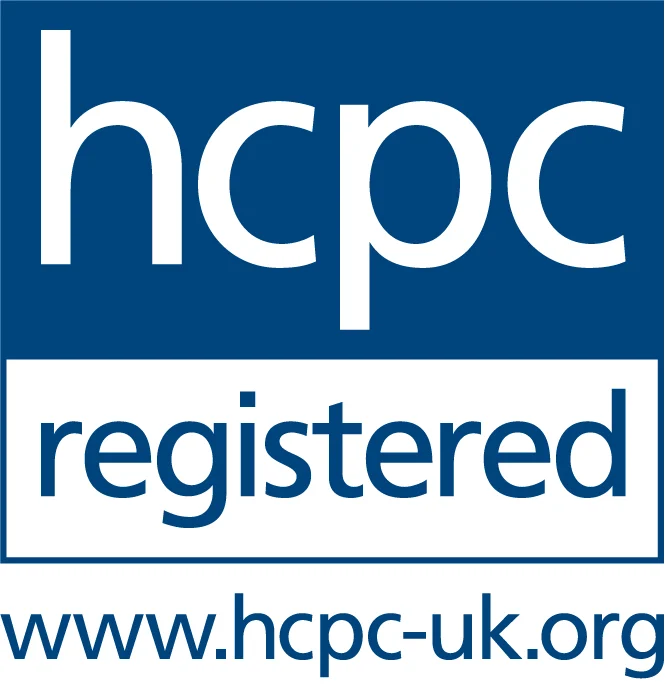What is Adult ADHD (Attention Deficit Hyperactivity Disorder)? How common is Adult ADHD? What causes Adult ADHD? What are the symptoms of Adult ADHD? How is Adult ADHD diagnosed? Related conditions and treatment.
Read PostWhat is Autism Spectrum Disorder?
Autism Spectrum Disorder (ASD) is the medical name for a complex, lifelong, developmental condition that causes persistent difficulties with repetitive behaviours, social communication, and restricted interests. Autism affects people in different degrees, and each person with autism may be affected slightly differently, but there are key challenges that characterise autism.
Challenges with social communication:
- Difficulties understanding their own and others' emotions
- Reduced sharing of interests with other people
- Difficulties with making or maintaining eye contact, and challenges making and understanding non-verbal communication
- Different tone, volume, speed, or pitch of speech, and scripted language
- Difficulties making and maintaining friends, and challenges with small-talk
- Misinterpreting conversations, usually by taking things literally or misunderstandings
Challenges with restricted interests and repetitive behaviours:
- Difficulties tolerating changes to routines, unexpected events, or new experiences
- Strong urges to arrange items, and the need to keep things in a particular order
- Inflexibility of behaviour which makes coping with change extremely hard
- A restricted range of specialist interests, often to the detriment to day to day life
- Sensory sensitivities that affect everyday life
- Body movements, such as rocking, spinning, and hand flapping, sometimes known as ‘stimming’
What is a neurodiversity?
The term ‘neurodiversity’ was coined by an Australian sociologist, Judy Singer, who had Autism Spectrum Disorder (ASD) herself. It has since been popularised by the American journalist Howard Blume throughout the 1990s.
‘Neurodiversity’ is an umbrella term that refers to the variations in brain function that exists across the population. Differences, such as Autism Spectrum Disorder (ASD) and Attention Deficit Hyperactivity Disorder (ADHD) have existed throughout human history, and are not due to faulty neural circuitry or poor parenting. Rather than seeing them as such, neurodiversity embraces all our different ways of thinking and behaving.
Supporters of neurodiversity believe that society should work to eliminate stigma, create accommodations, and accept fully people with a neurodiversity, as we all contribute to society. Everyone is different. For some people, the variations between the strengths and challenges are more pronounced, and a neurodiverse condition may be present. People who have a neurodiversity are sometimes referred to as ‘neurodivergent’.
There is still discussion in the academic and clinical community about what is included in the umbrella of neurodiversity. Although neurodiversity primarily refers to Autism and ADHD, there is discussion about it including dyslexia, dyspraxia, epilepsy, sensory sensitivities, communication difficulties and Tourette’s syndrome. This is because there is often an overlap in the way that people experience these different conditions.
Obtaining a neurodiversity assessment (usually an Autism and/or ADHD assessment) can take a long time through the NHS, as waiting times can be very long for both children, adolescents, and adults. This is why you might be seeking a private assessment. You might also be looking for a second opinion as you may have disagreed with another professional’s opinion. It can be a worrying time, and you may have told your story many times already to several people. This can be stressful in itself.
How do I know if I need an assessment?
At Equilibrium Practice a neurodiversity assessment will be undertaken by a suitably qualified clinical professional, such as a clinical psychologist. Different diagnosticians might use different methods to diagnose ASD and/or ADHD, but all assessments are carried out by a Consultant Clinical Psychologist, and will use NHS-approved diagnostic tools and will follow the NICE Clinical Guideline 128 (for England, Wales and Northern Ireland) for Autism Spectrum Disorder. It is essential that an Autism assessment is carried out with two clinicians for it to be accepted by the NHS or local Council.
Here at Equilibrium Practice, we have clinicians trained in DISCO, ADI-R, and ADOS, so you can be assured that your assessment is fully NHS-compliant.
When assessing ASD, we work as an expert team within the practice, bringing together Clinical Psychology and Educational Psychology, or Speech and Language Therapy, or Occupational Therapy, each with expertise and experience in assessing Autism Spectrum Disorder, depending on your needs. All clinicians are Health and Care Professions Council (HCPC) registered and trained in the administration of approved assessment tools. All assessments are led and signed off by a Consultant Clinical Psychologist.
What's involved in an assessment?
There is a difference between how children and adults are assessed for neurodiversity, and how a diagnosis might help. When children are assessed, both you, your child, and your child’s school are typically involved in the assessment.
An assessment for children and adolescents usually involves the following aspects:
- Prior to the assessment appointments, you will be asked to complete some questionnaires.
- At the assessment appointments, you will be asked about your pregnancy, the birth, any problems your child is having, their general health, your child’s development, and the structure of the family as a whole. Time will be spent talking to your child and observing their behaviour in the clinic room.
- Depending on the age of your child, they might be observed at school, or playing with other children, or playing with you or the psychologist – this is so they can be observed playing, using their imagination, and how they communicate and interact with other people, and also their attention, concentration and activity in the classroom.
- School reports and any other reports about your child’s development will also be taken into consideration, and it can be helpful to talk to their teachers, other family members or family friends.
An assessment for adults usually involved the following aspects:
When adults are assessed, it may not be possible or appropriate to have a parent/carer/guardian involved in the assessment. An adult assessment usually involves the following aspects:
- Prior to the assessment appointments, you will be asked to complete some questionnaires.
- During the assessment itself, you will be asked about a range of aspects of your social interactions, the way you communicate and how you behave in certain situations, including how you might be masking symptoms to cope, your mental health, and any sensory issues.
- If you chose to have a parent/carer/guardian present, at the assessment appointments they will be asked about their pregnancy with you, (or your birth history if you were adopted or fostered), the birth itself, any problems that you had through your early years and development, your general health as a child, and the structure of the family as a whole.
- School reports and any other reports about your development will also be taken into consideration.
- People sometimes find it helpful to ask other people in their lives (other family members, family friends, partners, colleague or boss) about how they experience being with you to help inform the assessment.
How can a diagnosis help?
A diagnosis can help both your child, and you, in several ways:
- A diagnosis can be reported onto your child’s GP record, so that all health care professionals are aware of their diagnosis and can tailor any other future health interventions, according to their needs.
- A diagnosis can be reported onto your child’s school, which can inform the way teachers interact with your child. It can also support your child with funding and the onwards creation by their school of an Education, Health and Care Plan (EHCP).
- A diagnosis can also help both you and your child make sense of their experiences. Post-diagnosis, it can help to make sure that you and the school are using the right strategies to support your child.
- A diagnosis might also identify specific areas of strength and challenge for your child. Because Equilibrium Practice is comprised of professionals from different disciplines, support can be offered from a range of professionals, if required.
A diagnosis can help adults in several ways:
- A diagnosis can be reported onto your GP record, so that all health care professionals are aware of your diagnosis and can tailor any other future health interventions, according to your needs.
- A diagnosis can be reported to education providers or employers, which can inform the way others interact with you. Education providers and employers must make ‘reasonable adjustments’ so that you can thrive in education or employment.
- A diagnosis can also help both you make sense of your experiences, and how you interact with other people and the world around you. Post-diagnosis, it can help to make sure that you are using the right strategies to support yourself.
- A diagnosis might also identify specific areas of strength and challenge for you. Because Equilibrium Practice is comprised of professionals from different disciplines, support can be offered from a range of professionals, if required.
If you think that you, or your child, require an assessment of Autism Spectrum Disorder (ASD), contact us to arrange a consultation to discuss your requirements further.
Disclaimer: All blog content is for information only and is not mental health treatment.
Other Posts
Why isn't 'Asperger's Syndrome' a diagnosis anymore? What do we call 'Aspergers' Syndrome' now? What if I had a diagnosis of Asperger's Syndrome before 2013?
Read PostWhat is childhood ADHD? How common is childhood ADHD? What causes childhood ADHD? What are the symptoms of childhood ADHD? How is childhood ADHD diagnosed? Related conditions. How is ADHD treated?
Read PostWhat is Cognitive Behaviour Therapy (CBT)? How does CBT work? How do I know if CBT is right for me? What happens during CBT?
Read PostWhat is Acceptance and Commitment Therapy (ACT)? How are CBT and ACT different from each other? What happens in ACT?
Read PostWhat is STAIR Therapy? What are the goals of STAIR?
Read PostWhat is anxiety? What are the symptoms of anxiety? What are the different types of anxiety disorders?
Read PostWhat is Dental Anxiety, or Dentophobia? What are the symptoms? What are the causes? What is the overlap between Dentophobia and Blood-Injury-Injection Phobia? What is the treatment?
Read Post




